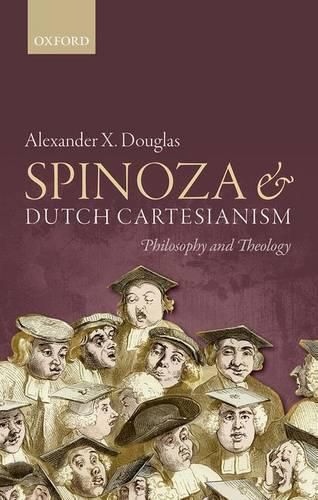Readings Newsletter
Become a Readings Member to make your shopping experience even easier.
Sign in or sign up for free!
You’re not far away from qualifying for FREE standard shipping within Australia
You’ve qualified for FREE standard shipping within Australia
The cart is loading…






Alexander X. Douglas offers a new understanding of Spinoza’s philosophy by situating it in its immediate historical context. He defends a thesis about Spinoza’s philosophical motivations and then bases an interpretation of his major works upon it. The thesis is that much of Spinoza’s philosophy was conceived with the express purpose of rebutting a claim about the limitations of philosophy made by some of his contemporaries. They held that philosophy is intrinsically incapable of revealing anything of any relevance to theology, or in fact to any study of direct practical relevance to human life. Spinoza did not. He believed that philosophy reveals the true nature of God, and that God is nothing like what the majority of theologians, or indeed of religious believers in general, think he is. The practical implications of this change in the concept of God were profound and radical. As Douglas shows, many of Spinoza’s theories were directed towards showing how the separation his opponents endeavoured to maintain between philosophical and non-philosophical (particularly theological) thought was logically untenable.
$9.00 standard shipping within Australia
FREE standard shipping within Australia for orders over $100.00
Express & International shipping calculated at checkout
Alexander X. Douglas offers a new understanding of Spinoza’s philosophy by situating it in its immediate historical context. He defends a thesis about Spinoza’s philosophical motivations and then bases an interpretation of his major works upon it. The thesis is that much of Spinoza’s philosophy was conceived with the express purpose of rebutting a claim about the limitations of philosophy made by some of his contemporaries. They held that philosophy is intrinsically incapable of revealing anything of any relevance to theology, or in fact to any study of direct practical relevance to human life. Spinoza did not. He believed that philosophy reveals the true nature of God, and that God is nothing like what the majority of theologians, or indeed of religious believers in general, think he is. The practical implications of this change in the concept of God were profound and radical. As Douglas shows, many of Spinoza’s theories were directed towards showing how the separation his opponents endeavoured to maintain between philosophical and non-philosophical (particularly theological) thought was logically untenable.